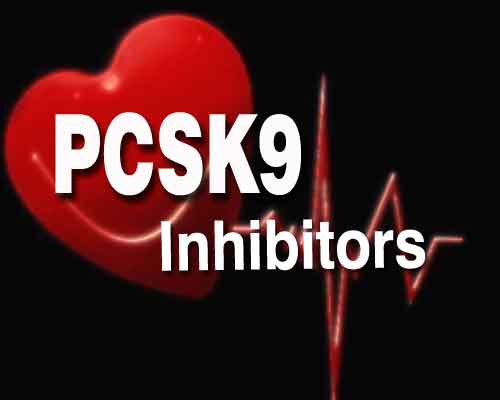- Home
- Editorial
- News
- Practice Guidelines
- Anesthesiology Guidelines
- Cancer Guidelines
- Cardiac Sciences Guidelines
- Critical Care Guidelines
- Dentistry Guidelines
- Dermatology Guidelines
- Diabetes and Endo Guidelines
- Diagnostics Guidelines
- ENT Guidelines
- Featured Practice Guidelines
- Gastroenterology Guidelines
- Geriatrics Guidelines
- Medicine Guidelines
- Nephrology Guidelines
- Neurosciences Guidelines
- Obs and Gynae Guidelines
- Ophthalmology Guidelines
- Orthopaedics Guidelines
- Paediatrics Guidelines
- Psychiatry Guidelines
- Pulmonology Guidelines
- Radiology Guidelines
- Surgery Guidelines
- Urology Guidelines
Alirocumab-Statin Combo cuts risk of CV events in diabetics: ODYSSEY Trial

An analysis of ODYSSEY OUTCOMES trial indicates that Alirocumab, Statin Combo is more effective at reducing the risk of a cardiac event in diabetics as compared to patients with Prediabetes or those with normal Blood Sugar.
Patients with recent history of ACS are at an increased risk of future heart attacks and strokes, compared to people who have never experienced ACS. In case patient having recent ACS has diabetes also, then the risk of future cardiovascular events is even higher.
In a recent study presented at the American Diabetes Association's® (ADA's) 78th Scientific Sessions it has been found out that Alirocumab and Statins are highly effective in controlling the risk of future MI or Stroke in such People with Diabetes with Acute Coronary Syndrome.
All these patients of diabetes who have experienced recent acute coronary syndrome (ACS) and take a combination of alirocumab and statins may reduce their risk of future cardiac events by more than double that of people on the same medication regimen who have similar cardiac histories but have prediabetes or normal blood glucose levels.
In the ODYSSEY OUTCOMES trial results,presented in March 2018, it was shown that among patients who experienced recent ACS, an injection of alirocumab (a PCSK9 inhibitor) once every two weeks plus maximum-tolerated statin medication significantly reduced future major adverse cardiac events (MACE)—coronary heart disease death, nonfatal myocardial infarction (MI), fatal and nonfatal ischemic stroke or hospitalization for unstable angina, compared to a placebo. The 18,924 study participants had baseline LDL cholesterol levels above 70mg/dL and had experienced ACS within one to 12 months prior to the beginning of the study. In addition to maximum-tolerated statin therapy, participants were administered alirocumab subcutaneously, with the dose titrated between 75 and 150 mg every 2 weeks to achieve an LDL cholesterol level of 25-50mg/dL. The primary endpoint was the length of time to the first MACE.
The current analysis of the study evaluated the participants' absolute risk reduction (ARR), grouping results by whether the participants had diabetes, prediabetes or normoglycemia (normal levels of glucose in the blood).
Of the ODYSSEY OUTCOMES trial participants, 5,444 (28.8 percent) had diabetes, 8,246 (43.6 percent) had prediabetes, and 5,234 (27.7 percent) had normal glucose levels. The data indicates the patients with diabetes who were in the alirocumab group had the greatest ARR. Researchers concluded the medication regimen may almost double the ARR (2.3 percent%) in people with diabetes who have experienced recent ACS, compared to people with recent ACS and prediabetes (ARR = 1.2 percent) or people with normal glucose levels (ARR = 1.2 percent).
"The analyses show adding alirocumab to maximally tolerated statins reduced the overall incidence of MACE, and the absolute risk reduction was highest among those with diabetes when compared to people with prediabetes or people without diabetes," said Kausik Ray, MD, ChB, professor of public health, department of public health and primary care at the School of Public Health of Imperial College in London. "One reason for the success of the medication combination in this group is that their absolute risk was so high; the other groups that took the alirocumab also derived benefit, but the benefit was slightly less because their risk was lower. Additionally, some genetic studies have suggested that lowering bad cholesterol with this type of therapy (a PCSK9 inhibitor) might push people with prediabetes to diabetes. We found no evidence of new-onset diabetes for the people in the study who took alirocumab. These results suggest intensive cholesterol-lowering using the combination of statins and alirocumab offers us a means to significantly reduce heart disease risk in this patient population."
For more details click on the link: http://www.diabetes.org/newsroom/press-releases/2018/alirocumab-and-statins-highly-1.html

Disclaimer: This site is primarily intended for healthcare professionals. Any content/information on this website does not replace the advice of medical and/or health professionals and should not be construed as medical/diagnostic advice/endorsement or prescription. Use of this site is subject to our terms of use, privacy policy, advertisement policy. © 2020 Minerva Medical Treatment Pvt Ltd